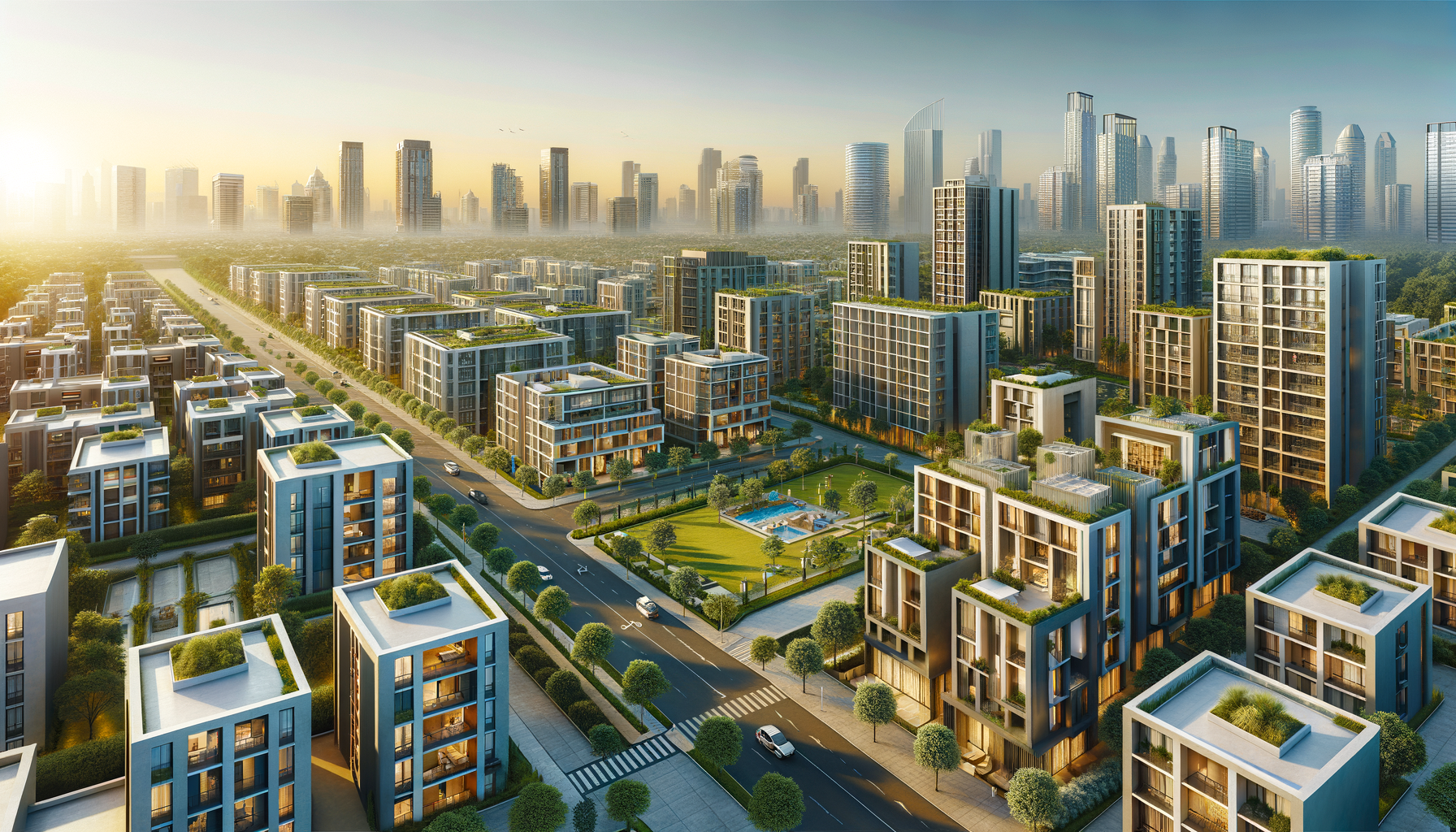
Explore Apartments in a Desirable Location
The Appeal of Renting Apartments in Desirable Locations
Renting an apartment in a desirable location offers a multitude of benefits that can significantly enhance one’s lifestyle. These areas often boast vibrant communities, excellent amenities, and convenient access to public transportation. Living in such locations can provide a sense of belonging and ease that is hard to match elsewhere. Additionally, these areas are typically well-connected to essential services, entertainment options, and employment hubs, making daily life more convenient and enjoyable.
For many, the appeal of renting in a sought-after area includes the proximity to cultural attractions and recreational facilities. Whether it’s a bustling downtown scene or a tranquil suburban setting, these locations offer diverse experiences that cater to a wide range of preferences. Moreover, living in a desirable location can provide a sense of security and community, with many neighborhoods featuring active residents’ associations and community events.
Another key advantage is the potential for property appreciation. While renters may not directly benefit from this, they can enjoy living in a well-maintained and continuously improving area. This often translates to better infrastructure, more green spaces, and enhanced public services. Ultimately, renting an apartment in a desirable location can offer a quality of life that is both fulfilling and enriching.
Understanding the Rental Market Dynamics
The rental market in desirable locations can be competitive and fast-paced, requiring prospective tenants to be well-prepared and informed. Understanding market dynamics is crucial for making informed decisions and securing an apartment that meets one’s needs and budget. Key factors influencing the rental market include supply and demand, economic conditions, and seasonal trends.
Supply and demand play a significant role in determining rental prices and availability. In high-demand areas, the competition for apartments can drive up prices, making it essential for renters to act quickly and decisively. Economic conditions, such as job growth and income levels, also impact the rental market. A thriving local economy can attract more residents, increasing demand for housing and potentially leading to higher rental costs.
Seasonal trends can also affect the rental market, with certain times of the year experiencing higher demand. For instance, many people prefer to move during the summer months, leading to increased competition and potentially higher prices. Understanding these dynamics can help renters plan their search strategically and take advantage of periods when the market may be less competitive.
- Research local market trends and average rental prices.
- Prepare necessary documentation in advance to expedite the application process.
- Consider working with a reputable real estate agent to navigate the market effectively.
Key Features to Look for in Rental Apartments
When searching for a rental apartment, it’s essential to consider various features that can impact your living experience. While personal preferences will vary, certain elements are universally important for ensuring comfort and convenience. Key features to consider include location, amenities, and the apartment’s condition.
The location of an apartment is a crucial factor, as it influences daily commutes, access to services, and overall quality of life. Proximity to public transportation, schools, and shopping centers can greatly enhance convenience and reduce travel time. Additionally, consider the neighborhood’s safety, noise levels, and community vibe to ensure it aligns with your lifestyle.
Amenities offered by the apartment complex can also significantly impact your living experience. Features such as on-site laundry facilities, fitness centers, and communal spaces can add value and convenience. Additionally, consider the availability of parking, pet policies, and maintenance services, as these can affect your daily routine and overall satisfaction.
Finally, assess the apartment’s condition and layout. Ensure that the space is well-maintained, with functional appliances and adequate storage. A practical layout can enhance comfort and usability, making it easier to organize and personalize your living space. Taking the time to evaluate these features can help you find an apartment that meets your needs and enhances your lifestyle.
Budgeting for Your Apartment Rental
Creating a realistic budget is a crucial step in the apartment rental process. Understanding your financial limits and planning accordingly can help prevent overspending and ensure long-term financial stability. Start by assessing your monthly income and expenses to determine how much you can comfortably allocate to rent.
As a general rule, it’s advisable to spend no more than 30% of your monthly income on rent. This guideline helps ensure that you have enough funds left for other essential expenses, such as utilities, groceries, and transportation. Additionally, consider setting aside a portion of your budget for unexpected costs, such as repairs or emergencies.
When budgeting, also factor in additional costs associated with renting, such as security deposits, application fees, and moving expenses. These can add up quickly, so it’s important to account for them in your financial planning. Additionally, consider the cost of utilities and other recurring expenses, as these can vary significantly depending on the apartment and location.
- Create a detailed budget that includes all potential expenses.
- Research average utility costs in your desired area.
- Consider potential cost-saving measures, such as energy-efficient appliances.
By carefully budgeting and planning, you can find an apartment that fits your financial situation and allows you to enjoy your new home without financial strain.
Tips for Finding the Right Apartment
Finding the right apartment can be a daunting task, but with careful planning and research, you can simplify the process and increase your chances of success. Start by defining your priorities and must-have features, such as location, size, and amenities. This will help you narrow down your options and focus your search on apartments that meet your criteria.
Next, leverage online resources and platforms to explore available listings and gather information about the rental market. These tools can provide valuable insights into pricing trends, neighborhood characteristics, and apartment features. Additionally, consider visiting potential apartments in person to get a feel for the space and surrounding area.
Networking can also be a valuable tool in your apartment search. Reach out to friends, family, and colleagues for recommendations or potential leads. They may have insights or connections that can help you find the perfect apartment. Additionally, consider working with a reputable real estate agent who can guide you through the process and provide expert advice.
- Define your priorities and must-have features.
- Utilize online resources and platforms for research.
- Visit potential apartments in person to assess their suitability.
- Network with friends, family, and colleagues for recommendations.
By following these tips and staying organized, you can streamline your search and find an apartment that meets your needs and enhances your lifestyle.
